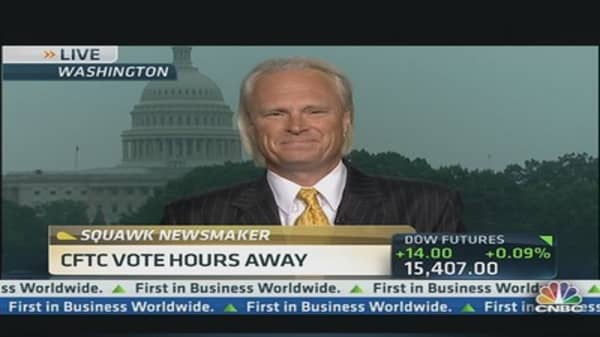"The far-flung operations of U.S. financial institutions have to comply with Dodd-Frank, though at times it might be through comparable regimes elsewhere," said CFTC Chairman Gary Gensler.
Regulators are cracking down on the $630 trillion swaps market, one of the main arenas of the 2007-09 credit meltdown, a market that mushroomed into a vast playground for speculators from modest beginnings in the mid-1980s.
The CFTC's so-called final guidance was the last major piece of a raft of new rules the agency is writing in an effort to make the derivatives market safer.
The plan contained no major shifts from what the CFTC proposed a year ago, though much of the impact on the market would depend on the wording of the final version, which will be published in the coming days.
"I'm sure it's a few hundreds pages and we only got the highlights, but it sounds like to a significant extent it's similar to where they were at the beginning," said Joel Telpner, a New-York based partner at law firm Jones Day.
Banks such as Citigroup, JPMorgan Chase and Bank of America, which dominate the lucrative derivatives market, had been anxiously waiting to see the finer print of the rules.
Friday was the last day the CFTC could decide on the issue as a broad exemptive relief from its rules expired. Failure to have rules in place would cause regulatory chaos and invoke the wrath of already critical politicians.
The CFTC had been divided about the issue itself, and it was unclear whether Gensler would be able to round up the required three votes for the plan. But he reached a last-minute deal with fellow Democrat Commissioner Mark Wetjen earlier this week.




